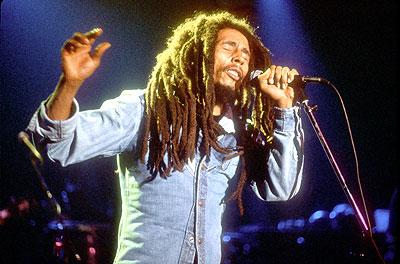Around 1960 in the slums of Kingston, Jamaica, local drummers mixed sounds from American R & B, Pan African, and the Caribbean to produce a musical mixture called Reggae.


Around 1960 in the slums of Kingston, Jamaica, local drummers mixed sounds from American R & B, Pan African, and the Caribbean to produce a musical mixture called Reggae. Although strongly influenced by traditional African and Caribbean music, as well as American Rhythm and Blues, reggae owes its direct origins to the progressive development of Ska and Rocksteady in 1960s Jamaica.The Wailers, a band that was started by Bob Marley, Peter Tosh and Bunny Wailers in 1963 are generally agreed to be the most easily recognised group worldwide that made the change through all three stages from Ska’s hits like Simmer Down through slower Rocksteady to Reggae.In addition to the Wailers, other significant pioneers include Prince Buster, Desmond Dekker, Jackie Mittoo and several others.The popularity and spread of Reggae music influenced the Grammy Awards to introduce the Best Reggae Album category in 1985. As it is to do with dynamism, the Reggae music genre has further given rise to several sub genres.The following are the notables ones among them; Skinhead Reggae, Roots Reggae, Dub, Rockers and lovers’ Rock. Newer styles and spin-offs have also emerged namely; Dancehall, Ragamuffin, Reggae ton, Reggae fusion and a host of others.It is also a widely acknowledged fact that hip hop and Rap are later spin-offs of Reggae music as well. Toasting as it is called is a style of chanting or talking over the record that was first used by 1960’s Jamaican Deejays such as U-Roy and Dennis Alcapone.However, the popular Jamaica genre later became a major part of the music of Nigeria, especially after the rise of singer Majek Fashek. There were also many Nigerian Reggae performers, apart from the long running band, The Mandators, other musicians include; Jerri Jheto, Daddy Showkey, Ras Kimono and the London based MC Afrikan Samba.These pioneers of Reggae music included big names liked Orits Williki, Peterside Ottong, Andy Shoreman, Daniel Wilson, Edward Inyang, a.k.a Blackky, Alex Zitto, Evi Edna Ogoli, Wale Man, Isaac Black and a host of others.These guys paved the way for the new generation of home grown Reggae artistes that were topping the music charts in Nigeria then. Reggae music was propelled and drilled into the mainstream Nigerian music scene in the mid eighties.During this period, FM Radio stations became a viable medium of choice for many recording artistes and record label executives because of its chart topping musical programmes delivered to the listeners with hard dose of fresh and youthful radio personalities and broadcasters.Today, Reggae music is in the midst of a second, further reaching technological revolution.


